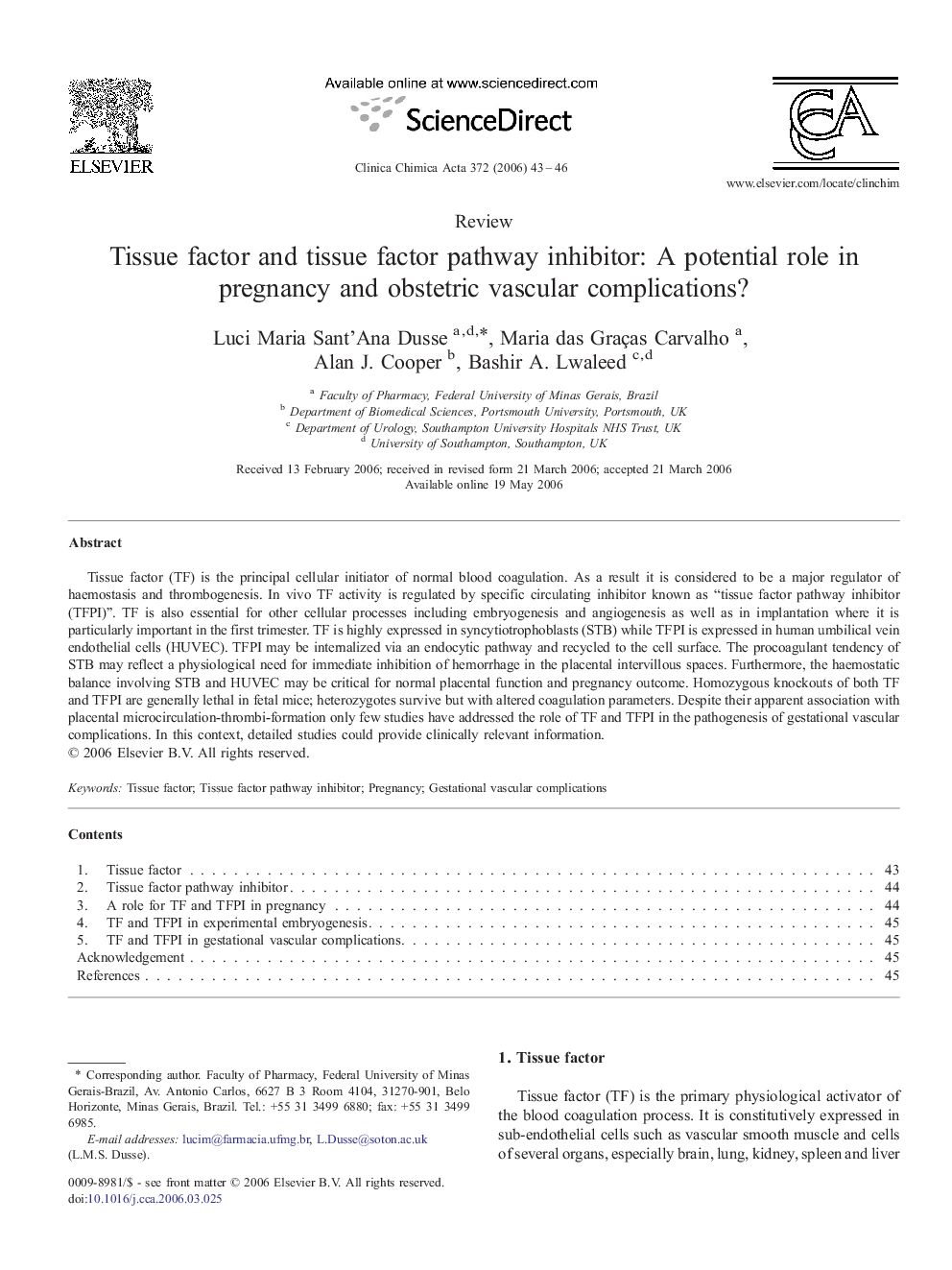| Article ID | Journal | Published Year | Pages | File Type |
|---|---|---|---|---|
| 1967733 | Clinica Chimica Acta | 2006 | 4 Pages |
Tissue factor (TF) is the principal cellular initiator of normal blood coagulation. As a result it is considered to be a major regulator of haemostasis and thrombogenesis. In vivo TF activity is regulated by specific circulating inhibitor known as “tissue factor pathway inhibitor (TFPI)”. TF is also essential for other cellular processes including embryogenesis and angiogenesis as well as in implantation where it is particularly important in the first trimester. TF is highly expressed in syncytiotrophoblasts (STB) while TFPI is expressed in human umbilical vein endothelial cells (HUVEC). TFPI may be internalized via an endocytic pathway and recycled to the cell surface. The procoagulant tendency of STB may reflect a physiological need for immediate inhibition of hemorrhage in the placental intervillous spaces. Furthermore, the haemostatic balance involving STB and HUVEC may be critical for normal placental function and pregnancy outcome. Homozygous knockouts of both TF and TFPI are generally lethal in fetal mice; heterozygotes survive but with altered coagulation parameters. Despite their apparent association with placental microcirculation-thrombi-formation only few studies have addressed the role of TF and TFPI in the pathogenesis of gestational vascular complications. In this context, detailed studies could provide clinically relevant information.
